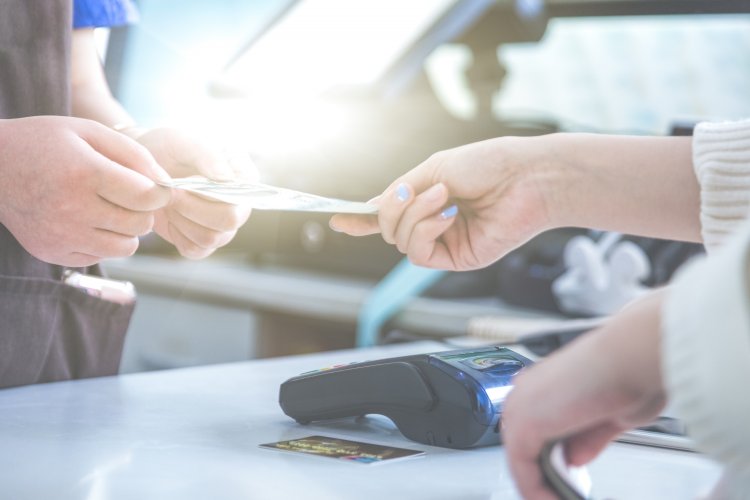Most drivers treat their cars like mobile storage units, tossing receipts into glove compartments, cup holders, or door pockets without a second thought. Whether it’s proof of a gas station purchase, parking ticket, or shopping receipt from a quick errand, these seemingly harmless pieces of paper tend to accumulate over time.
But according to automotive industry expert Kazimieras Urbonas, Supplier Excellence Manager at Ovoko, one of Europe’s largest online marketplaces for used car parts, this common habit creates risks that extend far beyond simple clutter.
“Most people don’t realise that their car interior can become a treasure trove of personal information,” explains Urbonas. “Every receipt tells a story about where you’ve been, what you’ve purchased, and when – information that can be extremely valuable to the wrong people.”
The expert emphasises that understanding these risks is the first step toward better protecting both your vehicle and your personal data.
The Hidden Dangers of Car Receipt Storage
When receipts pile up in your vehicle, they create multiple security vulnerabilities that most drivers never consider. These paper trails contain far more sensitive information than people realise.
“Every receipt is essentially a data point,” says Urbonas. “Gas station receipts show your travel patterns and preferred locations. Shopping receipts reveal your spending habits and financial capacity. Even a simple coffee shop receipt can indicate your daily routine.”
Identity thieves can piece together this information to build detailed profiles of potential targets. Credit card numbers, even when partially masked, combined with location data and timestamps, provide enough information for sophisticated fraud schemes. Receipts from expensive purchases are particularly dangerous, as they can signal to criminals that you have valuable items or significant disposable income.
Fire Hazards: When Heat Meets Paper
Beyond data security concerns, paper receipts pose a genuine fire risk in vehicles, especially during summer months. “Car interiors, such as dashboards, can reach temperatures exceeding 160°F (71°C) when parked in direct sunlight,” Urbonas explains.
“Paper begins to degrade and become combustible at surprisingly low temperatures,” he continues. “When you factor in the confined space of a car interior, the presence of electrical components, and potential heat sources like cigarette lighters or phone chargers, even a small pile of receipts can become a fire hazard.”
Thermal paper receipts are particularly problematic because they contain chemicals that can release toxic fumes when heated to extreme temperatures. These receipts can also leave residue on car surfaces when exposed to high heat for extended periods.
Smart Receipt Management Solutions
Protecting yourself from these risks doesn’t require dramatic lifestyle changes. Urbonas says that simple adjustments to how you handle receipts can eliminate most dangers. He lists them here:
Take Photos Immediately: Use your smartphone to photograph important receipts before leaving the store or gas station. Digital copies serve the same purpose for warranties and returns while eliminating physical storage risks.
Regular Vehicle Cleanouts: Schedule weekly or bi-weekly sessions to remove all paper items from your car. This prevents accumulation and reduces both fire and theft risks.
Secure Disposal: Never throw receipts in regular trash where information remains visible. Use a crosscut shredder at home or dispose of them in secure document destruction bins available at many banks and office supply stores.
“The goal isn’t to become paranoid about every piece of paper,” notes Urbonas. “It’s about developing awareness of how seemingly innocent items can create unexpected vulnerabilities.”
Kazimieras Urbonas, Supplier Excellence Manager at Ovoko, commented:
“Your car is more vulnerable than you think – not just to physical break-ins, but to data privacy breaches that can happen without you ever knowing. In my role ensuring quality and consistency across automotive processes, I see how easily overlooked details can create significant problems down the line. The same principle applies to personal vehicle security. People invest in car alarms and steering wheel locks, but they leave detailed records of their lives sitting in plain sight.
“The automotive industry has evolved tremendously in terms of digital security for modern vehicles, yet drivers continue to create analog vulnerabilities through simple oversights. A receipt might seem insignificant, but it represents a data point that, combined with others, can paint a complete picture of your habits, finances, and lifestyle. Taking control of these small details is one of the easiest ways to improve your overall security posture significantly.”


